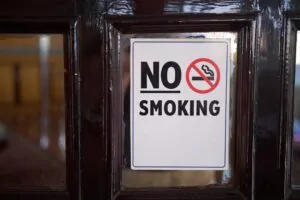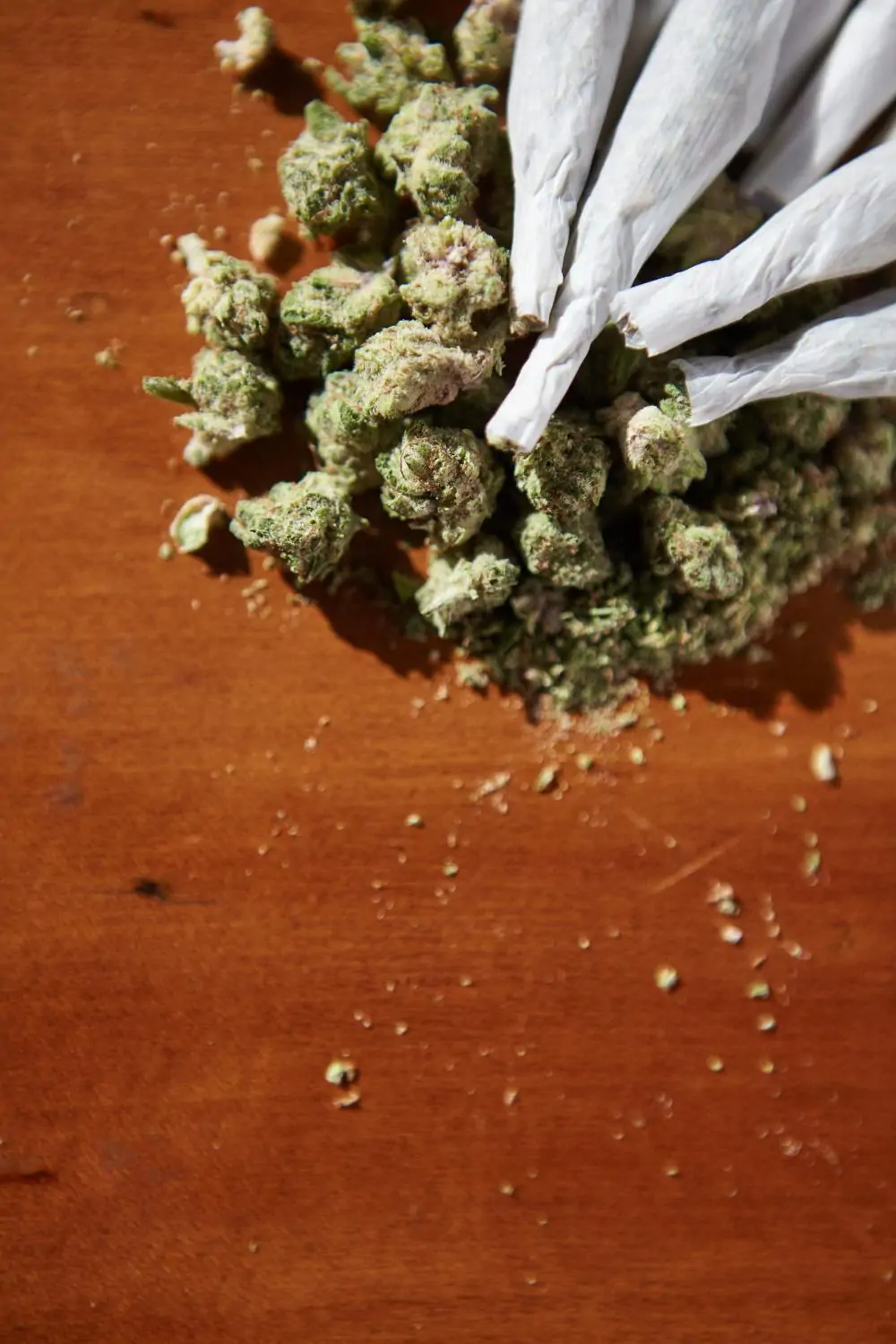
Why Guests Hate Smoking in Hotel Rooms and How It Costs Hotels
Table of Contents
ToggleMarijuana smoking in hotel rooms remains a pervasive issue, affecting guest experiences, hotel reviews, and overall revenue. Despite strict non-smoking policies, guests often ignore these rules, leading to a range of negative outcomes. This article explores the adverse effects of smoking in hotel rooms, including the challenges faced by hotel staff in identifying and managing such incidents. We’ll delve into real-world examples and provide strategies to mitigate these issues.
Understanding the Impact of Smoking in Hotel Rooms
Guest Experience and Smoking Violations
When guests encounter smoking in their rooms, it significantly diminishes their experience. Non-smokers are particularly sensitive to the smell of smoke or marijuana, which can permeate furnishings, carpets, and linens, leading to discomfort and dissatisfaction.
Negative Reviews and Their Ramifications
 Negative experiences due to smoking often translate into poor online reviews. Platforms like TripAdvisor and Yelp become outlets for disgruntled guests, whose reviews can deter potential customers and damage the hotel’s reputation.
Negative experiences due to smoking often translate into poor online reviews. Platforms like TripAdvisor and Yelp become outlets for disgruntled guests, whose reviews can deter potential customers and damage the hotel’s reputation.
Requests to Move Rooms
Guests who detect smoke in their rooms or marijuana smell from neighboring rooms frequently request to be moved. This not only disrupts their stay but also creates logistical challenges for hotel staff. Finding a suitable alternative room on short notice can be difficult, especially during peak seasons.
Financial Implications of Room Changes
Every room change due to smoking violations incurs additional cleaning costs and potential loss of revenue. The need to deep clean and deodorize affected rooms means these rooms cannot be rented out immediately, leading to downtime and revenue loss.
Detecting Smoking in Hotel Rooms
Hotel staff employ various methods to detect smoking violations. Housekeeping often finds physical evidence such as ashes, cigarette butts, and smoke stains. Advanced smoke detection devices can also help identify smoking in rooms.
 Evidence of Smoking: Physical Clues and Advanced Detection
Evidence of Smoking: Physical Clues and Advanced Detection
Physical Clues:
- Ashes and Cigarette Butts: Often found in trash bins or around the room.
- Smoke Stains: Visible on walls, curtains, and furniture.
- Odor: Persistent smell that lingers even after airing out the room.
- Marijuana: matter found on tables and sourounding area.
Advanced Detection Methods:
- Smoke Detectors: Some hotels install specialized smoke detectors that can distinguish between different types of smoke.
- Air Quality Monitors: These devices can alert staff to changes in air quality indicative of smoking.
Staff Responses to Smoking Incidents
Once smoking is detected, staff must act swiftly to mitigate the impact. Immediate actions include moving the guest to a different room and initiating a deep cleaning process for the affected room.
Cleaning and Deodorizing Strategies
Deep cleaning involves:
- Ozone Machines: Used to neutralize smoke odors.
- Steam Cleaning: Effective on carpets and upholstery.
- Air Purifiers: Help remove smoke particles from the air.
Policy Enforcement and Guest Communication
Clear communication of non-smoking policies is crucial. Hotels should display signage prominently and outline penalties for violations in the check-in documentation.
Penalties for Smoking Violations
Penalties often include a hefty cleaning fee, which can deter guests from smoking in non-smoking rooms. These fees should cover the cost of additional cleaning and potential revenue loss.
Training Staff to Handle Smoking Violations
Staff training is essential for effectively managing smoking violations. Training programs should cover:
- Detection Techniques: How to identify signs of smoking.
- Guest Interaction: How to handle conversations about smoking violations diplomatically.
- Emergency Procedures: Steps to follow if a guest refuses to comply with non-smoking policies.
Technology Solutions for Smoking Detection
Investing in technology can enhance smoking detection and enforcement:
- Smoke & Marijuana Detection Sensors: These can be installed in rooms to monitor air quality.
- Integrated Monitoring Systems: Centralized systems allow front desk staff to monitor multiple rooms simultaneously.
Case Studies: Hotel Responses to Smoking Incidents
Real-world examples illustrate effective strategies:
- Case Study 1: A mid-sized hotel installed smoke detectors and saw a significant decrease in smoking incidents.
- Case Study 2: A luxury hotel trained its staff extensively and implemented strict penalties, resulting in improved compliance.
Guest Education and Awareness
Educating guests about the non-smoking policy at check-in and through in-room materials can prevent violations. Information should be clear and emphasize the consequences of smoking in rooms.
Future Trends in Smoking Detection
Emerging technologies promise more effective solutions:
- Smart Sensors: These can detect a wider range of substances and provide real-time alerts.
- Mobile Apps: Guests can report smoking violations discreetly, allowing staff to respond promptly.
Balancing Hospitality and Enforcement
Hotels must balance enforcement with hospitality. While strict policies are necessary, it’s important to maintain a friendly and welcoming atmosphere.
Feedback and Continuous Improvement
Regular feedback from guests and staff can help improve smoking policies and enforcement strategies. Hotels should review and update their policies periodically based on this feedback.
Legal Considerations and Compliance
Hotels must ensure their smoking policies comply with local laws and regulations. Legal advice can help navigate complex regulations and avoid potential legal issues.
The Role of Online Reviews in Policy Enforcement
Monitoring online reviews can provide insights into the effectiveness of smoking policies. Responding to reviews transparently can also enhance the hotel’s reputation.
Using Do-Not-Return Lists (DNR)
Hotels can implement Do-Not-Return (DNR) lists to manage repeat offenders. This involves tracking guests who have violated non-smoking policies and ensuring they are not allowed to book rooms in the future.
Guest Ban and ID Scanning
To further enforce policies, hotels can use ID scanning systems that network with other hotels. These systems flag potential risks, including guests known for smoking violations. By sharing this information, hotels can collectively maintain a higher standard of compliance and guest satisfaction.
Conclusion
Smoking in hotel rooms poses significant challenges, impacting guest satisfaction, hotel reputation, and revenue. By employing effective detection methods, enforcing strict policies, and training staff, hotels can mitigate these issues and provide a better experience for all guests.
FAQs
How can hotels detect smoking in rooms? Hotels use a combination of physical inspections, advanced smoke detectors, and air quality monitors to detect smoking in rooms.
What are the penalties for smoking in a hotel room? Penalties typically include a cleaning fee ranging from $250 to $500, intended to cover the cost of deep cleaning and potential revenue loss.
How do smoking violations affect hotel revenue? Smoking violations lead to room downtime for cleaning, resulting in lost revenue. The hotel may also incur additional cleaning costs.
Can guests request to move rooms if they detect smoke? Yes, guests can request to move rooms if they detect smoke. Hotels usually accommodate these requests to ensure guest satisfaction.
What training do hotel staff receive to handle smoking violations? Hotel staff are trained to identify signs of smoking, communicate policies to guests, and manage violations diplomatically.
How do negative reviews about smoking incidents impact hotels? Negative reviews can damage a hotel’s reputation, deterring potential guests and affecting overall bookings.

 Evidence of Smoking: Physical Clues and Advanced Detection
Evidence of Smoking: Physical Clues and Advanced Detection